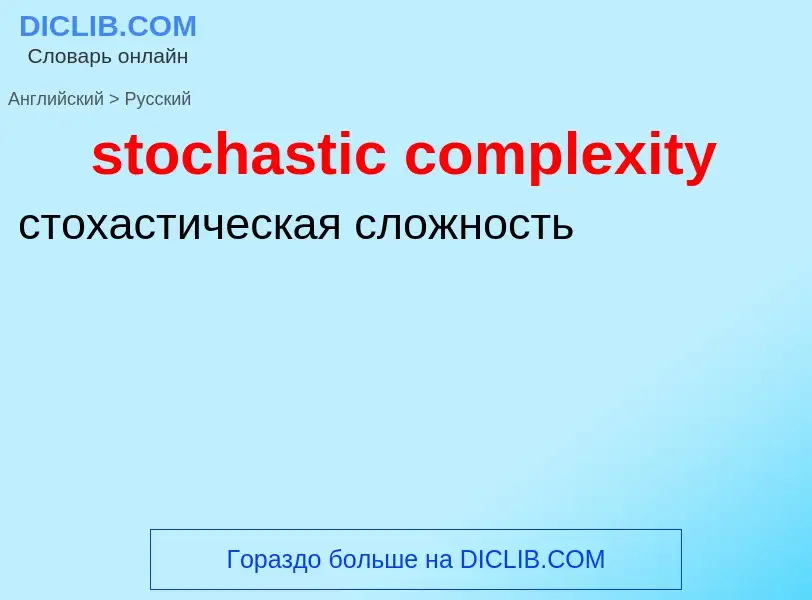Μετάφραση και ανάλυση λέξεων από την τεχνητή νοημοσύνη ChatGPT
Σε αυτήν τη σελίδα μπορείτε να λάβετε μια λεπτομερή ανάλυση μιας λέξης ή μιας φράσης, η οποία δημιουργήθηκε χρησιμοποιώντας το ChatGPT, την καλύτερη τεχνολογία τεχνητής νοημοσύνης μέχρι σήμερα:
- πώς χρησιμοποιείται η λέξη
- συχνότητα χρήσης
- χρησιμοποιείται πιο συχνά στον προφορικό ή γραπτό λόγο
- επιλογές μετάφρασης λέξεων
- παραδείγματα χρήσης (πολλές φράσεις με μετάφραση)
- ετυμολογία
stochastic complexity - translation to ρωσικά
- algorithmic complexity
- arithmetic complexity
- cipher-breaking complexity
- circuit complexity
- combinational complexity
- communication complexity
- computational complexity
- correlation-immunity complexity
- cryptoanalitic complexity
- deterministic complexity
- exponential complexity
- exponential time complexity
- first order complexity
- functional complexity
- information-based complexity
- intractable computational complexity
- Kolmogorov complexity
- linear complexity
- maximal order complexity
- multiplicative complexity
- polynomial complexity
- polynomial time complexity
- quadratic complexity
- second order complexity
- software complexity
- space complexity
- state complexity
- stochastic complexity
- structural complexity
- time complexity
- time-space complexity
- worst-case complexity
- Ziv-Lempel complexity
Ορισμός
Βικιπαίδεια

In algorithmic information theory (a subfield of computer science and mathematics), the Kolmogorov complexity of an object, such as a piece of text, is the length of a shortest computer program (in a predetermined programming language) that produces the object as output. It is a measure of the computational resources needed to specify the object, and is also known as algorithmic complexity, Solomonoff–Kolmogorov–Chaitin complexity, program-size complexity, descriptive complexity, or algorithmic entropy. It is named after Andrey Kolmogorov, who first published on the subject in 1963 and is a generalization of classical information theory.
The notion of Kolmogorov complexity can be used to state and prove impossibility results akin to Cantor's diagonal argument, Gödel's incompleteness theorem, and Turing's halting problem. In particular, no program P computing a lower bound for each text's Kolmogorov complexity can return a value essentially larger than P's own length (see section § Chaitin's incompleteness theorem); hence no single program can compute the exact Kolmogorov complexity for infinitely many texts.



